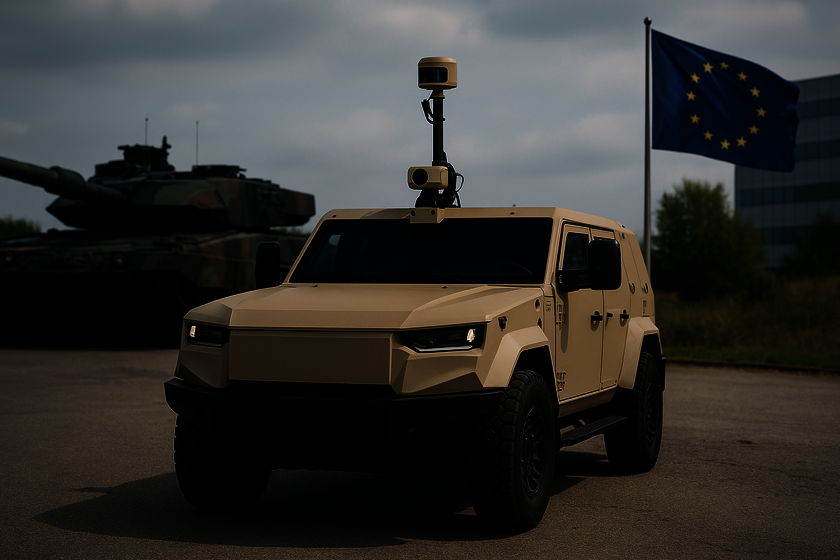
Europe’s Sovereignty Begins with Technology – Drive-by-Wire as a Strategic Enabler
The race for autonomy: Why Europe must catch up in tech, not just tanks
The geopolitical game has changed. While Europe increases its defence budgets and debates the next wave of military procurement, a parallel – and arguably more decisive – battle is unfolding:
The race for technological sovereignty.
Artificial intelligence, autonomous systems, cyber defence, and digital control architectures are shaping the future of security. And at the center of that transformation is a foundational capability: Drive-by-Wire.
Because without digital control, even the most advanced hardware becomes strategically obsolete.
Technology as the new instrument of power
China is accelerating investment in autonomous defence platforms. The U.S. is advancing innovation through programs like Replicator 2 and xTechIgnite, reinforcing its dual-use innovation ecosystem.
Europe? While recent initiatives like the Strategic Compass, European Defence Industrial Strategy, and the EDA’s APAS roadmap are positive steps, the gap between vision and deployment remains a concern.
“The EU and its Member States must have the means to protect themselves — in support of NATO, but also alone if necessary. This new era demands bold decisions and action.”
– Jiří Šedivý, Chief Executive, European Defence Agency (EDA), Annual Report 2024
The message is clear: Europe must build its own operational autonomy – not through more boots on the ground, but through digitally enabled, software-defined defence systems.
Drive-by-Wire: From automotive innovation to defence infrastructure
What began in the automotive industry as an innovation for a highly redundant safety architecture – originally developed for mobility solutions for people with disabilities, where absolute reliability is vital – has today evolved into a strategic defense instrument.
Drive-by-wire replaces mechanical control with digital interfaces – highly precise, software-controlled, fail-operational, and safety-certified.
Why it matters:
- No autonomous mobility without Drive-by-Wire
- No resilience in high-threat zones without redundancy
- No EU-based defence systems without sovereign certification and control
In short: Controlling Drive-by-Wire means enabling defence autonomy.
Arnold NextG and NX NextMotion: Sovereign systems, built in Europe
Arnold NextG’s NX NextMotion system embodies a European answer to U.S. and Chinese dominance in smart mobility and autonomy.
Designed with redundant digital pathways, platform-agnostic architecture and certified to ISO 26262 (ASIL D), ISO 61508 (SIL3) und ISO 21434 (Cybersecurity), it provides a flexible and resilient solution for military-grade vehicle automation.
Whether for autonomous supply transport, convoy operations, or teleoperated rescue vehicles – NX NextMotion delivers modularity, safety, and integration-readiness across defence platforms.
It is not a prototype. It is ready for deployment.
Standardization is the battlefield of sovereignty
One of the biggest levers for sovereignty lies in setting the standards.
The U.S. uses FMVSS regulations to shape its autonomous mobility framework. In contrast, Europe is still navigating the complexities of aligning ISO, UNECE and national defence certifications.
“The U.S. push for harmonized safety and performance standards may influence international frameworks. This creates an opportunity for Arnold NextG to shape and align with emerging global standards.”
– Analysis of Securing American Leadership in Autonomous Vehicles, 2025
For Europe, this means that only if European suppliers such as Arnold NextG are integrated into the standardization processes can a sovereign defence industry develop that can compete with the USA and China - without being dependent on them.
Conclusion: Technological leadership is defence capability
The question is no longer whether Europe needs to invest in technologies such as drive-by-wire - but how quickly.
NX NextMotion shows: The solutions are there. What is needed now is political will, courageous partnerships - and a common goal: to see technology as an opportunity for defense.
Because if you don't control your systems yourself, you will be controlled by others.
Then discuss with us on LinkedIn.




